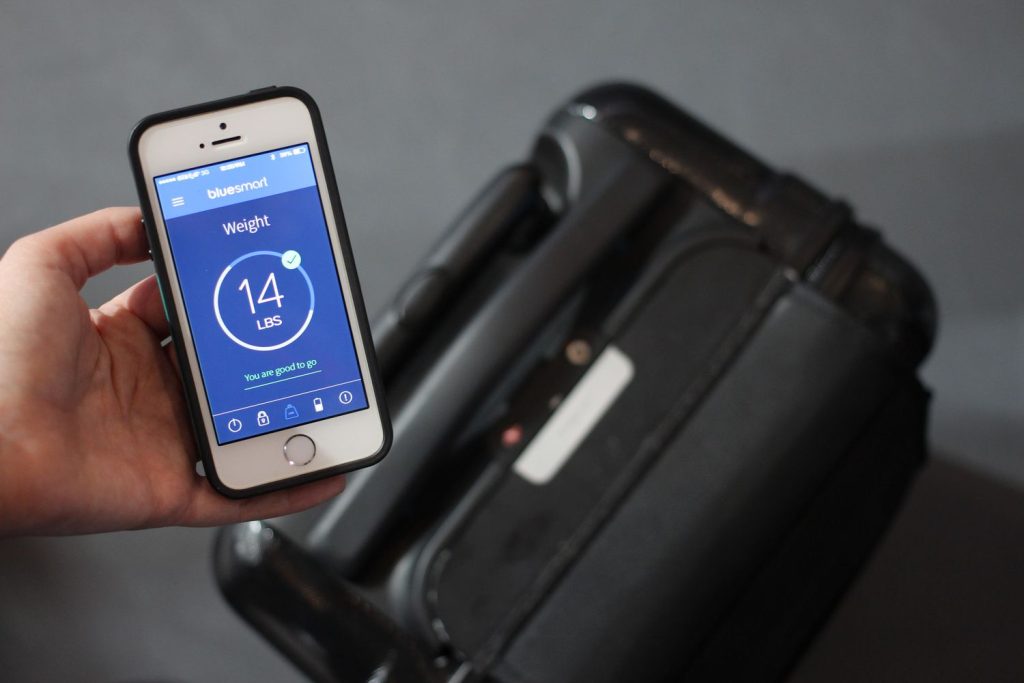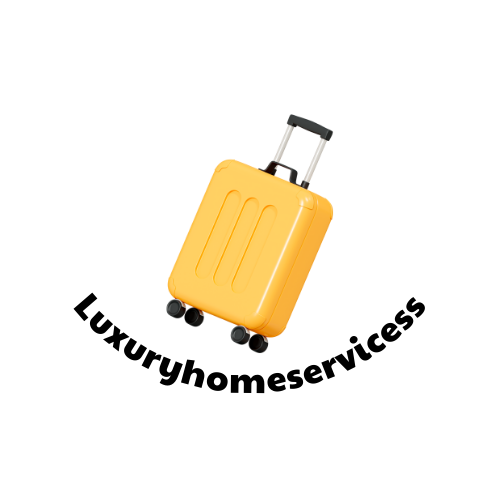Blog
Smart Luggage: What You Need to Know Before You Buy
The advent of smart luggage has revolutionized the way we travel, making it more convenient, efficient, and, in some cases, even more secure. With technology integrated into suitcases, travel bags, and carry-ons, smart luggage offers a range of features that cater to the modern traveler. From GPS tracking to built-in charging ports and even self-moving capabilities, the future of luggage is undeniably tech-driven.
However, before you rush to buy a smart suitcase, it’s important to understand what makes luggage “smart,” the pros and cons of these innovations, and the factors you should consider when choosing the right smart luggage for your needs.
In this article, we will explore everything you need to know before purchasing smart luggage, including key features, benefits, and potential drawbacks.
What is Smart Luggage?
Smart luggage refers to any piece of luggage equipped with technology that improves its functionality, enhances convenience, or provides additional security features. These innovations are designed to make traveling easier and more streamlined, giving you greater control over your luggage while you’re on the go.

Common features of smart luggage include:
- Built-in Charging Ports: USB ports or wireless charging stations allow you to charge your devices on the go.
- GPS Tracking: Some smart luggage includes tracking devices that let you track your bag’s location in real-time through a smartphone app.
- Bluetooth Connectivity: Luggage that can sync with your smartphone via Bluetooth, enabling features like remote locking or proximity alarms.
- Self-Weighing Scales: Integrated weight sensors in the handle that allow you to check the weight of your luggage before heading to the check-in counter, preventing excess baggage fees.
- Motorized Wheels: Some smart suitcases come with motorized wheels that can follow you around autonomously or be controlled remotely.
- Digital Locks: Smart locks that use biometric scans, apps, or digital codes instead of traditional keys, providing added security.
Why Should You Consider Buying Smart Luggage?
There are several reasons why you might want to invest in smart luggage. Let’s look at the benefits:
1. Convenience on the Go
- Charging Capabilities: The built-in USB ports make charging your phone, tablet, or other electronic devices easy without searching for an available outlet. Some suitcases even have wireless charging pads, letting you charge your device without needing extra cables.
- Weight Sensors: Many smart luggage models come equipped with a built-in scale that can weigh your bag to ensure it meets the weight limits for carry-on or checked luggage, helping you avoid expensive baggage fees.
- Remote Control: Motorized suitcases can be remotely controlled via an app or a simple push of a button, making it easier to move your luggage, especially when you’re dealing with heavy or bulky bags.
2. Enhanced Security
- GPS Tracking: If your bag gets lost or misplaced, GPS tracking gives you peace of mind by allowing you to monitor your luggage’s location in real-time. Many smart luggage systems sync with an app, providing notifications about your bag’s movements.
- Remote Locking and Digital Security: Instead of carrying around a physical key, smart luggage often features digital locks or locks that can be controlled via an app. Some models include biometric authentication or facial recognition technology, adding another layer of security.
3. Sustainability and Durability
Some smart luggage brands prioritize eco-friendly manufacturing, utilizing sustainable materials such as recycled plastics, biodegradable fabrics, and energy-efficient designs. Additionally, smart luggage is typically made from durable materials, such as polycarbonate, ballistic nylon, and aluminum, ensuring that your luggage lasts longer and stands up to the wear and tear of frequent travel.
4. Travel Comfort and Efficiency
Smart luggage can improve the overall travel experience by making navigating through airports easier. For instance, motorized luggage that follows you around can reduce the physical strain of dragging a heavy bag, while weight sensors and built-in organization help optimize your packing for efficiency.
What to Look for When Buying Smart Luggage
When considering a smart suitcase, there are several factors you should keep in mind to ensure you’re choosing the right one for your travel needs. Let’s take a look at some of the most important aspects:
1. Compatibility with Airline Regulations
One of the most important factors to consider is whether the smart luggage complies with airline regulations. Many airlines have strict rules when it comes to luggage, especially concerning battery-powered devices.
- Lithium-ion batteries: Most smart luggage pieces are powered by lithium-ion batteries, which can be restricted by airlines. For example, many airlines allow only a limited battery capacity (typically 300Wh) in carry-on luggage.
- Size and Weight Limits: Ensure that the dimensions of the smart luggage comply with your airline’s carry-on or checked baggage limits. Some smart suitcases, especially those with motorized features, can be bulky and may exceed size limits for carry-ons.
2. Battery Life and Charging Needs
Smart luggage comes with different battery life capabilities, depending on the features. Consider how long the luggage’s battery will last and whether it supports fast charging or wireless charging. A suitcase with a long battery life can be extremely useful, especially on long trips.
Additionally, check whether the luggage can be easily charged and if you can remove the battery for travel. Some airlines may not allow smart luggage with built-in batteries to be checked in, so it’s essential to choose a model with removable batteries if you plan on checking it in.
3. Durability and Build Quality
Since smart luggage is an investment, it’s essential to consider its build quality and durability. Look for luggage made from strong, lightweight materials such as polycarbonate, ABS, or ballistic nylon. These materials are known for their resistance to wear, scratches, and impacts, ensuring that your smart luggage lasts longer and keeps your belongings safe.
4. Security Features
While smart luggage comes with high-tech features, it’s important to evaluate the security options to ensure your bag is as secure as possible. Look for features such as digital locks, TSA-approved locks, and RFID-blocking compartments. If your luggage includes GPS tracking, make sure it works in the regions you’ll be traveling to, as some systems may only operate in specific countries.
5. Weight and Maneuverability
Despite being tech-enhanced, smart luggage should still be easy to carry, move, and store. When choosing smart luggage, consider the weight of the suitcase itself, as adding tech features can make some models heavier than traditional luggage. Four-wheeled spinners provide better maneuverability, making it easier to navigate crowded airports or train stations.
Potential Drawbacks of Smart Luggage
While smart luggage has many advantages, there are some potential drawbacks to consider before making your purchase.

1. Price
Smart luggage tends to be more expensive than traditional luggage due to the technology integrated into it. The added features, such as GPS tracking, motorized wheels, and charging ports, contribute to the higher cost. If you’re on a tight budget, you may need to weigh whether the extra features justify the price.
2. Weight and Bulkiness
Some smart luggage, especially those with motorized wheels or large batteries, can be heavier than standard luggage. This could be a concern if you’re looking to travel light or if you need to meet strict airline weight restrictions.
3. Battery Restrictions on Flights
As mentioned earlier, lithium-ion batteries can be problematic when flying. Many airlines have specific guidelines regarding the size and type of batteries that can be carried on board. This could limit your ability to check in your smart luggage, and you may have to remove the battery and carry it separately if you need to check your bag.
4. Potential for Technology Failures
Like any technology, smart luggage is subject to potential malfunctions. GPS trackers, motorized wheels, or app connections could fail or experience issues during travel, potentially leaving you with a malfunctioning bag in the middle of your trip. While these occurrences are rare, it’s worth considering whether you’re willing to accept the risks.
Top Smart Luggage Brands to Consider
If you’ve decided that smart luggage is right for you, here are some of the leading brands known for their innovation and quality:
- Away – Known for their durable polycarbonate luggage with a built-in USB charging port.
- Rimowa – A luxury brand that incorporates tech features such as electronic locks and app-controlled access.
- Samsonite – Offers a range of smart luggage with features like integrated scales, GPS tracking, and remote locking.
- Trunkster – Famous for its smart zipperless design, GPS tracking, and built-in charger.
- BlueSmart – One of the pioneers of smart luggage, featuring built-in GPS, a scale, and remote locking via a mobile app.
Conclusion: Is Smart Luggage Right for You?
Smart luggage offers a convenient, secure, and tech-enhanced travel experience, but it’s not for everyone. Before purchasing, consider your travel needs, airline restrictions, and budget. If you’re someone who frequently travels for business, enjoys tech innovations, or needs extra security and convenience while traveling, smart luggage could be a game-changer.
However, if you’re on a budget, don’t need the extra tech features, or prefer simpler luggage, a traditional suitcase may be a better option for you. Ultimately, the right luggage choice will depend on your specific preferences and travel habits.


